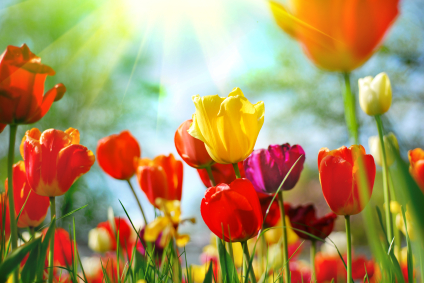My father, who is 87 and still actively teaching Chinese brush painting, tells his students, “I am a gardener and my garden is the classroom. I cultivate the garden so that the plants, my students, will bloom and their beauty will bring hope and joy to the world.” I too love to see the flowers in my garden bloom. My hope is that my students will far surpass my achievements and dreams. I feel the greatest fulfillment when I see my students grow and mature into servants and leaders all over the world.

Just today, after my students had spent an afternoon birding and learning about the wetlands in Florida, I listened to their thoughts over dinner. The topic was marine biology and the fact that people still use dynamite to fish near tropical coral reefs. I told them about my near death experience diving off the coast of China when fishermen were dynamiting. I shared with them that the captain and all the men and children who had surrounded us in the boat had never seen below the surface of the sea. Even though they had been fishing for generations, they had never looked below the ocean at God’s beautiful world of coral reefs. After loaning our snorkeling gear to them and watching them one by one see the world beneath surface, I was nearly moved to tears. They surfaced with faces filled with awe, surprise, and delight!
I told my students that these people, especially the children, will remember that dive forever, even if they never have another chance to look at the undersea world. They now understand that dynamiting kills so much beauty. The fishermen also realize that if they destroy the fish’s habitat, their own livelihood could be destroyed.
As I spoke, one of my students looked at me with eyes full of curiosity and even some fire. She had not known about the type of destruction I described. She was shocked and wanted to learn more. Inspired, she may find a way to directly help the fishermen in China. Or perhaps she will go on to teach others about the need to protect coral reefs. When plants have rich soil, are well-watered, and in the right environment, they bloom effortlessly. As a teacher, I try to provide the type of soil that will encourage this growth in my students.
Last year, on a trip to Haiti with my agricultural development class, we stopped to visit some families in a small village. One man we visited was dying. His family gathered all the chairs they could find and we sat outside in the front yard. They brought the elderly man out and with great effort he came and sat with us. We told him we were from a Christian college and were visiting and studying in Haiti. We wanted to pray for him and his family. He asked us to read scripture to him and sing. We read scripture in English and in Creole. We sang some hymns. As we sang and prayed, one the students surprised me. She got up, walked across the circle and put her arms on the dying man’s frail shoulders. When we left, the man’s children and grandchildren followed us down the dirt path expressing gratitude for our visit. I felt unsettled about the student who had comforted this man. Two days later we heard he had passed away. Then I realized why I felt so awkward. It was because I wished I had been the one to lead in love and wrap my arms around him. I realized that my student had taught me. Some students bloom in ways that pleasantly surprise me. Sometimes, it is my privilege to learn from them and see the beauty in their growth.
These are the reasons I teach. I want learning to matter to my students their whole life long. I want my students to go out and bloom. I want them to keep cultivating their own gardens. I want them to do greater things than their teacher.